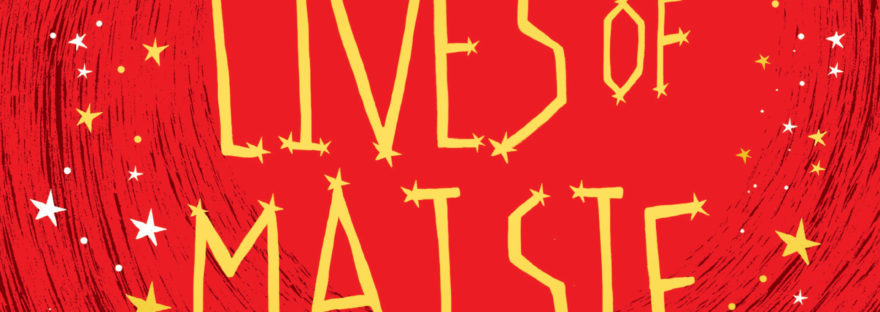By Christopher Edge (Nosy Crow)
‘There’s no resistance – no change in temperature as my hand moves from inside to out. But as I push against the darkness I can’t help feeling scared that the darkness will push back.’
It’s Maisie’s tenth birthday, but the house is empty and there is a black void outside the door; terrifying and never-ending, threatening Maisie’s very existence.
It’s Maisie’s tenth birthday and, as her parents prepare for her party, Maisie tries to keep herself occupied and out of the warpath of her angsty teenage sister.
Which reality is true? Can Maisie somehow reconnect with her older sister? And can Maisie stop the encroaching void before it engulfs the whole house…and her?
‘The Infinite Lives of Maisie Day’ is half set in the normal, everyday world – we are privy to the issues faced by the not-so-normal Maisie, a gifted child who has just turned ten and is currently studying for her degree in Mathematics and Physics. She feels coddled by her parents and would like nothing more than to spend time with her older sister, who seems to resent her and her intelligence.
The other half of the book is set in an almost dreamlike world, in which Maisie is alone, scared and confused, and being chased by an infinite blackness that is gradually swallowing the whole house. The rules of reality seem to bend and shift as time goes on, leaving Maisie constantly trying to stay one step ahead.
I have to admit that I found Maisie rather frustrating as a character at first – she comes across a bit “Sheldon-like” (from the Big Bang Theory) in the way that she spouts scientific knowledge, or needlessly overcomplicates things (most scientists are unlikely to think of smelling something cooking as “the molecules” that make up the smell weaving their way to the “odour receptors” in their nose for example!). However I found that she grew on me as the book progressed, especially in the otherworldly sections; here you are reminded that she is only a scared child, albeit a very smart one, who is having to face her fears and proves to be hugely resilient in doing so.
The other character that features heavily is Maisie’s sister, Lily; initially a somewhat stereotypical teenage girl. But, as with Maisie, she is driven by incredibly relatable insecurities – whereas Maisie has no friends and is thought of as a “freak”, Lily is tormented by feeling like she cannot compare to her younger sister. Much later in the book we get to see a truly different side of her, and it is both heart-warming and heart-breaking.
The story is laid out in an interesting way, with alternating chapters set in the two different “worlds”. The fantastical chapters keep the pace up from the get-go, never giving Maisie or the reader a chance to get their bearings. Having them intercut with the “slice of life” style content leaves you constantly off-kilter as you try to work out how and where the two connect. With only a couple of chapters to go, it all starts coming together in almost horrifying slow-motion, with the audience able to see what’s coming but powerless to stop it, and compelled to keep reading.
The theme of isolation is woven throughout the narrative, and not just in the most obvious sense – yes, Maisie is physically alone in the “void” world, but she is also alone in the normal world, isolated by her intelligence; similarly, her sister also feels alone, isolated from her family and by recent struggles with her peers. The book also looks at ideas of loss, as well as maturity, self-doubt, and the cares and woes of family.
The science can perhaps be a little heavy-handed at times, but you certainly cannot say that Edge didn’t do his homework – although somewhat simplified for the reader, the basic theories and facts are sound, and the list of scientific works and publications in the acknowledgements are testament to the effort he obviously put in. There were a few that, at first, I felt were a little unnecessary in their inclusion, but in actuality they not only give you a grounding on what is happening in the “void” world, but also an insight into how Maisie’s mind works and processes information.
By the end of the story, you feel like you have been spun around, turned upside down, punched in the gut and then pulled to your feet again, and you will not regret any of it. You might also come away with a new-found appreciation for science, especially cosmology! Oh, and make sure that you translate the binary at the back of the book (there are plenty of free binary-to-text translators online) – it’s not necessary to the story, but just adds a nice little note on the end.
Overall, it’s a confusing but enjoyable rollercoaster of emotion and science; I’d say that if you found it a little difficult or off-putting at first, stick with it as the payoff is definitely worth it!

